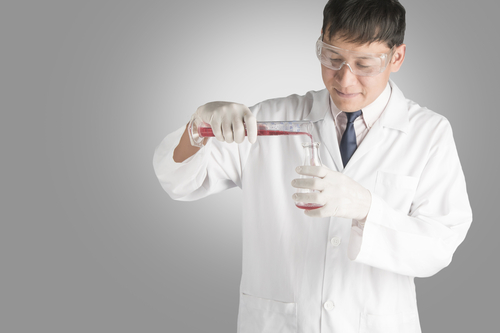New York Blood Center and Howard and Abby Milstein Foundation Partner to Develop Stem Cell Technology
Written by |

The New York Blood Center (NYBC) and the Howard and Abby Milstein Foundation recently announced plans to expand their partnership and joint efforts to further stem cell line technology and application in regenerative medicine. This expansion will also welcome Drs. Peter Wernet of Düsseldorf University and
cell line technology and application in regenerative medicine. This expansion will also welcome Drs. Peter Wernet of Düsseldorf University and Hans Schöler of the Max Planck Institute, Münster, working with the Good Manufacturing Practices (GMP) Labs of RheinCell Therapeutics. The collaboration will focus specifically on advancing Pluripotential Stem
Hans Schöler of the Max Planck Institute, Münster, working with the Good Manufacturing Practices (GMP) Labs of RheinCell Therapeutics. The collaboration will focus specifically on advancing Pluripotential Stem Cell (iPSC) lines which pose a lower risk of the patient’s immune system rejecting the treatment.
Cell (iPSC) lines which pose a lower risk of the patient’s immune system rejecting the treatment.
Last August, the NYBC had announced its new collaboration with the University of California Davis, Health System in developing advanced stem
Davis, Health System in developing advanced stem cell lines for tissue repair in several organs, such as the retina, kidney, lungs, liver, and possibly in the central nervous system to help address neurodegenerative diseases such as Parkinson’s, Alzheimer’s and Huntington’s disease.
cell lines for tissue repair in several organs, such as the retina, kidney, lungs, liver, and possibly in the central nervous system to help address neurodegenerative diseases such as Parkinson’s, Alzheimer’s and Huntington’s disease.
“We are pleased to provide the necessary funding to facilitate this collaboration and are excited about its potential contributions to advancements in the field of regenerative medicine,” said Howard P. Milstein, Chair of NYBC and the Howard and Abby Milstein Foundation. “Through collaborations such as these, we are creating the critical mass needed to drive groundbreaking innovations in regenerative medicine.”
NYBC’s president, Dr. Christopher Hillyer added: “NYBC’s accomplishments in creating and nurturing cord blood banking were made possible through our long tradition of innovation in medical biotechnology, thanks to the outstanding dedication of Dr. Rubinstein and his staff, and the visionary leadership of Board of Trustees Chairman Howard Milstein.”
were made possible through our long tradition of innovation in medical biotechnology, thanks to the outstanding dedication of Dr. Rubinstein and his staff, and the visionary leadership of Board of Trustees Chairman Howard Milstein.”
As for UC Davis and RheinCell, the two will be manufacturing iPSC lines using samples from the National Cord Blood Program (NCBP), which is the first to house the largest publicly accessible pool of neonatal stem cells derived from umbilical cord blood. In order to make these stem cells more functional and “partially universal”, regenerative medicine will have to ensure the cells undergo two differentiation processes: induced pluripotency – which will be done by RheinCell and UC Davis in Sacramento; and cell reprogramming.
Drs. Wernet and Schöler said: “This exciting international collaboration of symbiotic partners towards Advanced Regenerative Medicines from unrelated cord blood donors is a very important step towards our joint objective: the establishment of an HLA homozygous iPS cell library for clinical applications.”
“The reprogramming of HLA h iPSC into clinically useful functional cells and tissues will enable their off-the-shelf use for many unrelated individuals, saving time and money and leading to revolutionary advancements in regenerative medicine,” stated Mr. Milstein.


